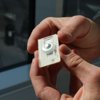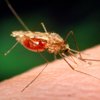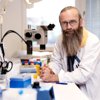Fritextsökning
Artiklar per år
Innehållstyper
-

Pfizer’s Paxlovid is being tested against post-COVID in a major Swedish study
In a new study conducted at the Karolinska University Hospital, Pfizer’s COVID drug, Paxlovid, is now being tested in patients with post-COVID. The study is one of the most extensive studies in the world currently being conducted for a drug for post-COVID.
-

19 medicines in Sweden are under investigation in a major EMA inquiry
19 medicines marketed in Sweden are affected by an ongoing extensive European investigation into suspected fraud at an Indian contract research organisation. Among them are medicines for HIV, epilepsy, cancer and Parkinson’s, which may be withdrawn unless new evidence can be provided that they are up to standard.
-

From the sea of Åland to a self-test for lithium
Four years ago, a meeting on the sea of Åland resulted in the development of a self-test for lithium levels in the blood. The hopes are that the test will be available for individuals with bipolar disorder in the future.
-

Samuel Lagercrantz: A special kind of hellishness afflicts post-COVID patients
In addition to the disease itself those suffering from post-COVID have to deal with people who try to label them as hypochondriacs, writes Samuel Lagercrantz in an editorial.
-

Here are the pharmaceutical companies best prepared for AI
How well prepared are pharmaceutical companies in the field of artificial intelligence? That is what a new analysis has tried to evaluate.
-

“Unfortunately, we are not strong when it comes to conducting clinical trials”
The number of company-initiated clinical trials conducted in Sweden has been declining in recent years. In mid-March, a government inquiry was presented that aimed to find answers and solutions to this downward trend. One of the proposals was a stable, sustainable and funded model for collaboration.
-

Small robots to deliver pharmaceuticals to the body
Robots that can operate inside the body and a platform that combines ultrasound with AI. These are a couple of the technologies that have qualified for a list that aims to promote sustainable entrepreneurship.
-

Why the world renown researcher Marc Tessier-Lavigne resigns as Stanford´s president
In mid-summer, neuroscientist Marc Tessier-Lavigne announced his resignation as President of Stanford following allegations of manipulated study data. According to the reporter Theo Baker, who first reported the story, Tessier-Lavigne “rewarded the winners and punished the losers”. Here is the background of the story which has shaken the American scientific community over the summer.
-

Uppsala-based company wins important patent dispute – but the decision is subject to appeal
A US district court has ruled in favour of Orexo in a dispute over the patent protecting the Swedish company’s drug Zubsolv, developed for treating patients with opioid addiction. However, the opposing party, the Indian company Sun, is not giving up and has filed an appeal.
-

The Swedish Life Science Office: “We lost in both coordination and manpower”
Since the turn of the year, the Swedish government’s life science office has operated at a lower capacity. Life Science Sweden has spoken to Pontus Holm, Departmental Secretary at the office, about the ongoing work.
-

Neanderthal gene variants may cause Viking disease
A new study suggests that the so-called Viking disease, which affects the hand function in many older people, may be linked to gene variants inherited from Neanderthals.
-

Lucy Robertshaw: Artificial intelligence – is this really going to transform a patient’s life?
In a column Lucy Robertshaw reflects on how AI and new regulations will affect healthcare, innovation and the lives of future patients.
-

Anna Törner: The minute between life and death
“I have never told anyone about this day that happened more than 20 years ago. But I sometimes reflect on what happened, on what might have happened. When I try to understand why I haven’t told anyone, I find the answer: a feeling of shame. There is no forgiveness for something like this, even though it is very human to be distracted for a moment,” Anna Törner writes in a column.
-

AstraZeneca moves to brewery quarters in central Copenhagen
AstraZeneca in Denmark is moving its business into central Copenhagen and the old brewery quarters in Carlsberg Byen.
-

Rapid developments in AI – “All stakeholders are struggling to understand it”
Artificial intelligence is being discussed more and more, and developments in the field are moving rapidly. As the Swedish Medical Products Agency testifies, keeping up with developments is not easy.
-

Study: Semaglutide tablet produces weight loss
The pharmaceutical semaglutide is effective for weight loss even when given in tablet form, according to a phase 3 study.
-

Samuel Lagercrantz: The government’s performance in healthcare and life sciences so far
Since the change of government in Sweden, developments in the healthcare sector have shown promising signs, but the outlook in life sciences is less promising, writes Samuel Lagercrantz in an editorial.
-

A new malaria vaccine offers hope but much more research is still needed
There has long been no vaccine against malaria, but there have been breakthroughs in recent years. However, it is still unclear how we become immune to the malaria parasite, and this is a vital piece of the puzzle for creating effective vaccines, says malaria researcher Kristina Persson.
-

Study: Chat GPT is more empathetic than doctors
The AI tool Chat GPT is not only more accurate when it comes to answering patient questions – the chatbot is also perceived as almost 10 times more empathetic than real doctors, a new study reveals.
-

Confidence in childhood vaccines is in decline worldwide
Since the pandemic, confidence in vaccinating children has plummeted. In a new report, UNICEF urges world leaders to act before the situation worsens. In 52 out of 55 countries surveyed, public perception of the importance of vaccinating children has declined.
-

Uncertainty about the government’s life science work
The government’s national coordinator for life science, Jenni Nordborg, left her position almost four months ago. No one has yet succeeded her, and now questions are being raised both about the government’s plans for the office and the Swedish life science strategy.
-

He got inside the head of Sweden’s vaccine hunter
The hunt for the COVID-19 vaccine is the theme of the new book Vaccinjägaren (The Vaccine Hunter). It tells the story of Richard Bergström’s mission as Sweden’s national vaccine coordinator and the scheming that went on behind the scenes in Europe. Author and medical journalist Nils Bergeå co-wrote the book with Richard Bergström.
-

New diagnostic rules raise concerns
In a panel discussion, several voices from academia and the industry expressed concerns about the transition to the new regulatory framework for in-vitro diagnostics (IVDR). They argue that it may create significant differences between regions, and patients may be affected.
-

Conference on Alzheimer’s reveals several advances in the field
In Gothenburg, Sweden, researchers and pharmaceutical companies from all over the world gathered to discuss one specific issue – neurological diseases. Life Science Sweden has talked to some of those that attended the conference.